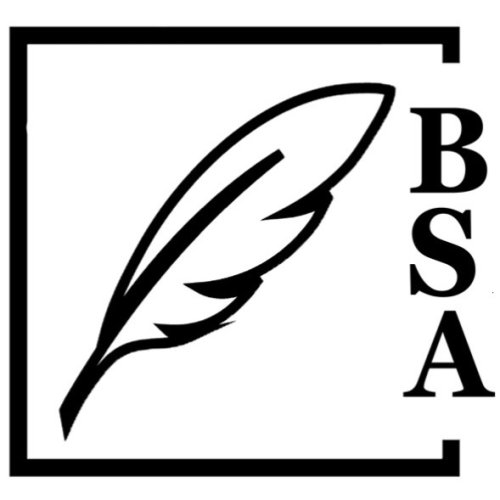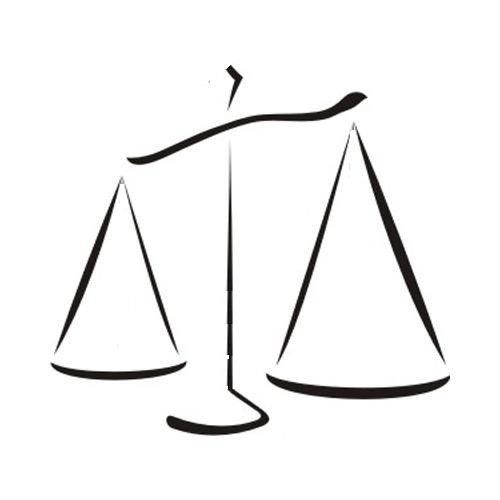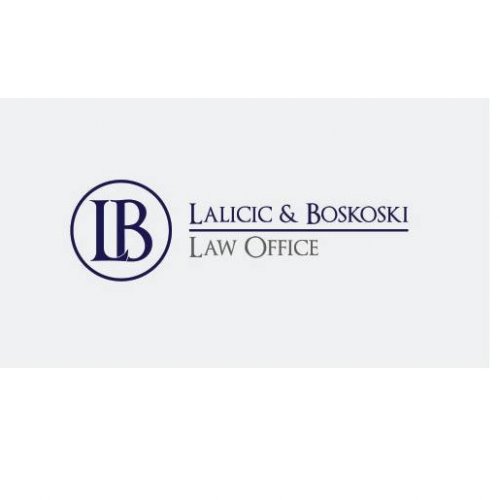Best Art & Cultural Property Law Lawyers in North Macedonia
Share your needs with us, get contacted by law firms.
Free. Takes 2 min.
Or refine your search by selecting a city:
List of the best lawyers in North Macedonia
About Art & Cultural Property Law in North Macedonia
Art & Cultural Property Law in North Macedonia is a specialized area of law that focuses on the protection and regulation of cultural heritage, art, and historical assets within the country. Given North Macedonia's rich history and diverse cultural landscape, the government has established specific laws and regulations to preserve these invaluable assets for future generations. This legal field encompasses a range of issues, including the acquisition, ownership, and repatriation of cultural property, as well as the management of museums, galleries, and historical sites.
Why You May Need a Lawyer
Individuals and organizations may find themselves in need of legal advice in Art & Cultural Property Law for various reasons:
- Disputed Ownership: Situations where the ownership of a particular piece of art or cultural property is contested.
- Repatriation and Restitution: Cases involving the return of cultural property to its rightful owner or country of origin.
- Import and Export: Navigating the complex regulations surrounding the import and export of cultural goods.
- Donation and Sale: Legal guidance on donating or selling art and cultural property, ensuring compliance with national and international law.
- Authenticity and Provenance: Issues related to the validation of art works' authenticity and documented history.
- Art Theft and Recovery: Legal pursuit in cases of art theft and the subsequent recovery process.
Local Laws Overview
North Macedonia has a comprehensive legal framework that addresses the protection and management of cultural property:
- Cultural Heritage Protection Act: The cornerstone legislation that outlines the responsibilities for safeguarding the nation’s cultural assets.
- National Cultural Heritage Agency: The primary governmental body overseeing cultural heritage protection, registration, and promotion.
- Import and Export Control: Regulations governing the movement of cultural property across national borders to prevent illegal trafficking.
- Conservation and Restoration Guidelines: Standards and practices required for the preservation of cultural properties.
- Intellectual Property Laws: Laws related to copyright, which can intersect with cultural property when dealing with contemporary art.
Frequently Asked Questions
What constitutes cultural property in North Macedonia?
Cultural property includes movable and immovable objects of historical, artistic, or scientific value that form part of the national heritage of North Macedonia.
How can I verify the authenticity of an artwork?
Engaging an expert in art valuation and provenance research is essential to verify the authenticity of art pieces, ensuring the integrity of transactional dealings.
Can cultural heritage items be taken out of North Macedonia?
The export of cultural heritage items is strictly regulated, requiring permits from relevant authorities. Unauthorized export can lead to severe legal repercussions.
What steps can be taken in the event of art theft?
Immediately report the theft to the local police and consult with a lawyer specializing in art crime to initiate recovery processes both locally and internationally.
Are there international treaties relevant to Art & Cultural Property Law?
Yes, North Macedonia is a signatory to various international agreements like the UNESCO Conventions which provide guidelines on protecting cultural heritage.
What is provenance research and why is it important?
Provenance research involves tracing the ownership history of an artwork or cultural object to confirm authenticity and rightful ownership, essential for legal compliance.
What should I know about donating art to a museum?
Before donating, consider consulting legal advice to understand tax implications, donor agreements, and the museum's accession policies.
How is intellectual property related to cultural property?
Intellectual property laws can apply to contemporary art and cultural expressions, protecting the rights of creators while respecting cultural heritage laws.
Who manages state-owned cultural properties?
The management of state-owned cultural properties is overseen by government agencies dedicated to heritage preservation, ensuring care and public access.
How do I find a lawyer specializing in Art & Cultural Property Law?
Seek referrals from professional associations, cultural bodies, or conduct online research to find lawyers with specialized expertise in this legal field.
Additional Resources
Here are some resources and organizations that can provide further assistance:
- National Cultural Heritage Agency: The governmental body responsible for the protection and promotion of Macedonia's cultural heritage.
- Museum of North Macedonia: Offers guidance on heritage laws and displays significant cultural objects.
- UNESCO Regional Office: Provides resources and support for adherence to international cultural property laws.
- Art & Antique Dealer Associations: They can provide advice and information pertinent to the art trade and legal considerations.
Next Steps
If you need legal assistance in Art & Cultural Property Law, consider taking the following steps:
- Identify Your Need: Clarify the specific legal issue or question you need assistance with to better articulate your needs to a professional.
- Consult a Specialist Lawyer: Look for a lawyer with expertise in Art & Cultural Property Law to ensure knowledgeable and focused legal advice.
- Gather Documentation: Prepare relevant documents, evidence, or provenance records to assist your lawyer in providing accurate legal guidance.
- Be Proactive: Stay informed about the latest updates in law by attending seminars or workshops hosted by cultural institutions or legal organizations.
Lawzana helps you find the best lawyers and law firms in North Macedonia through a curated and pre-screened list of qualified legal professionals. Our platform offers rankings and detailed profiles of attorneys and law firms, allowing you to compare based on practice areas, including Art & Cultural Property Law, experience, and client feedback.
Each profile includes a description of the firm's areas of practice, client reviews, team members and partners, year of establishment, spoken languages, office locations, contact information, social media presence, and any published articles or resources. Most firms on our platform speak English and are experienced in both local and international legal matters.
Get a quote from top-rated law firms in North Macedonia — quickly, securely, and without unnecessary hassle.
Disclaimer:
The information provided on this page is for general informational purposes only and does not constitute legal advice. While we strive to ensure the accuracy and relevance of the content, legal information may change over time, and interpretations of the law can vary. You should always consult with a qualified legal professional for advice specific to your situation.
We disclaim all liability for actions taken or not taken based on the content of this page. If you believe any information is incorrect or outdated, please contact us, and we will review and update it where appropriate.
Browse art & cultural property law law firms by city in North Macedonia
Refine your search by selecting a city.











